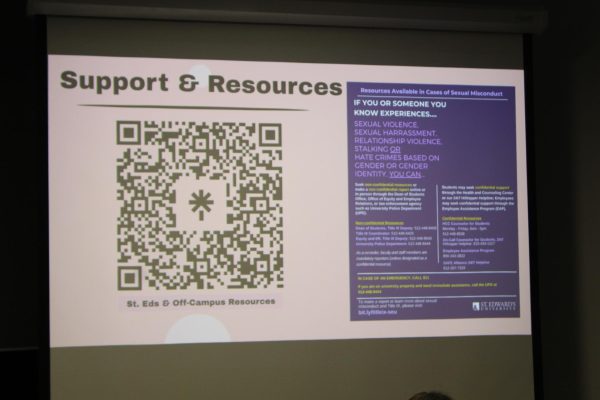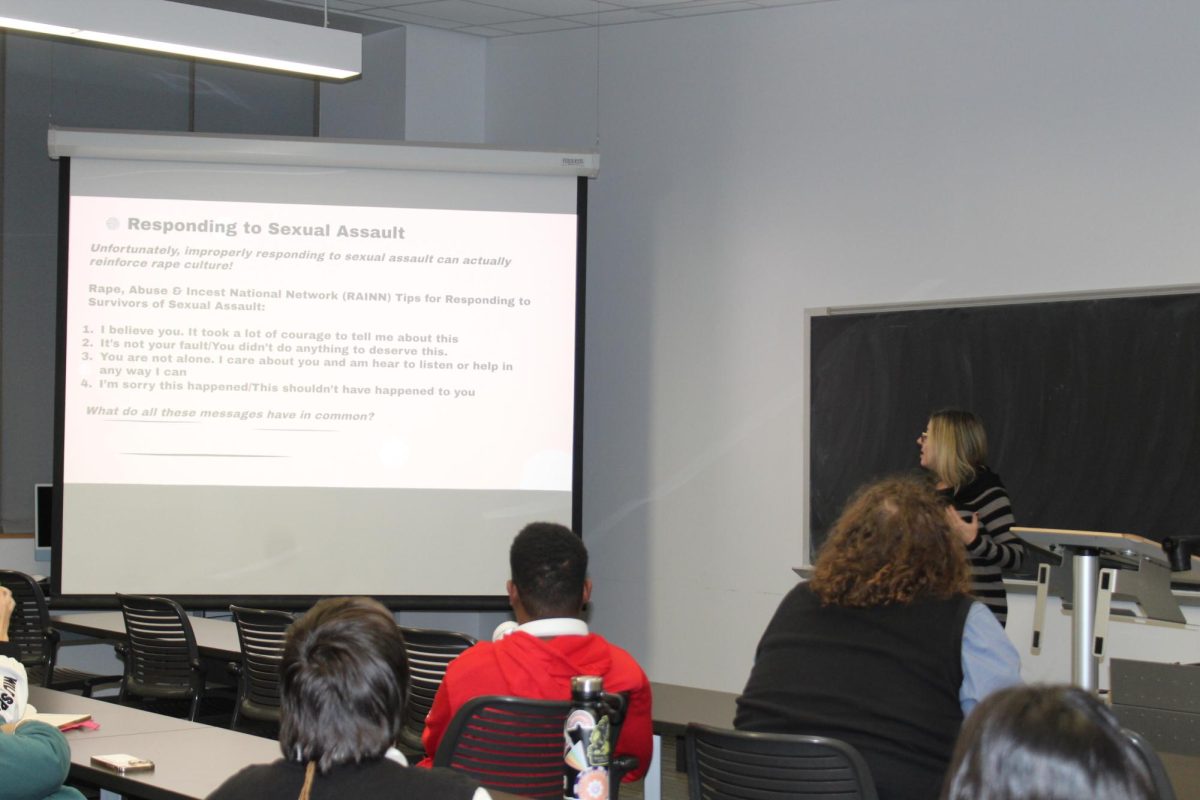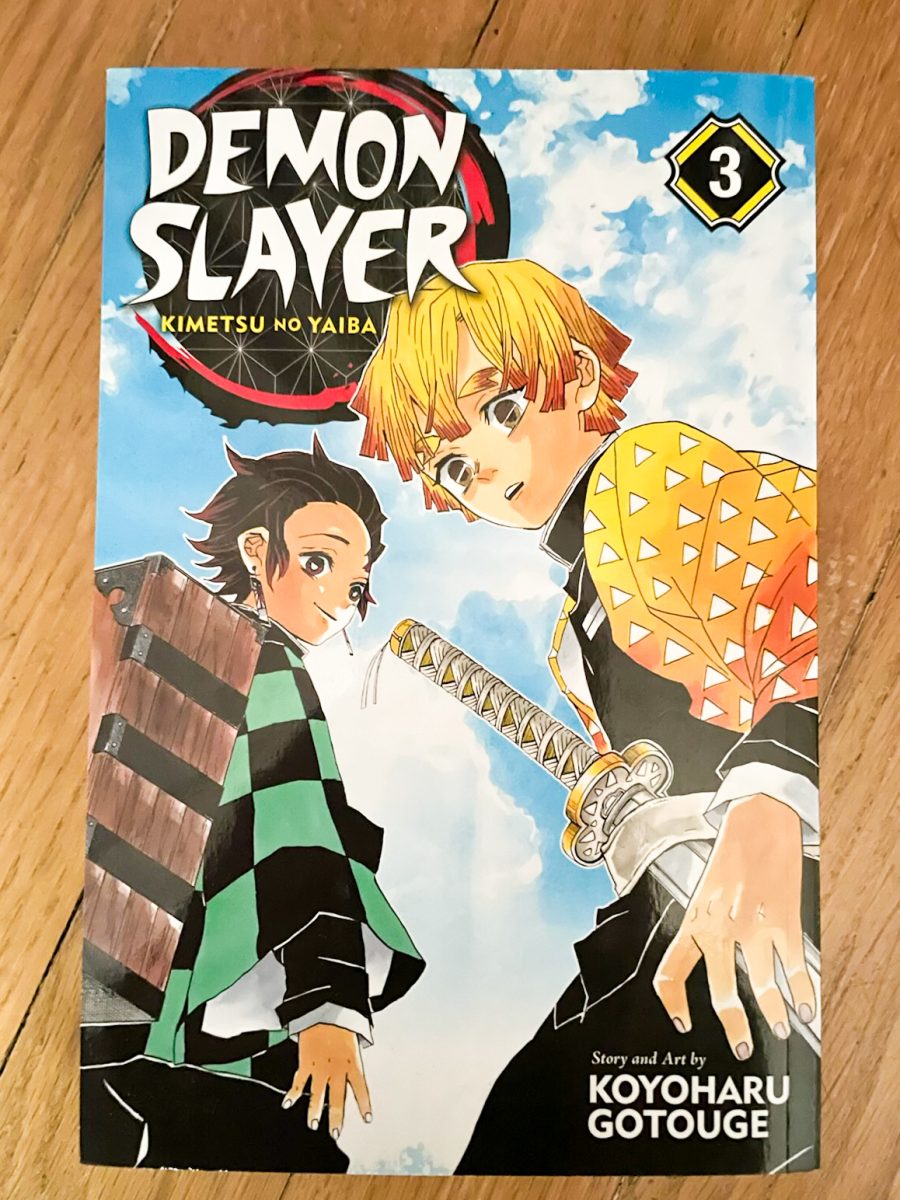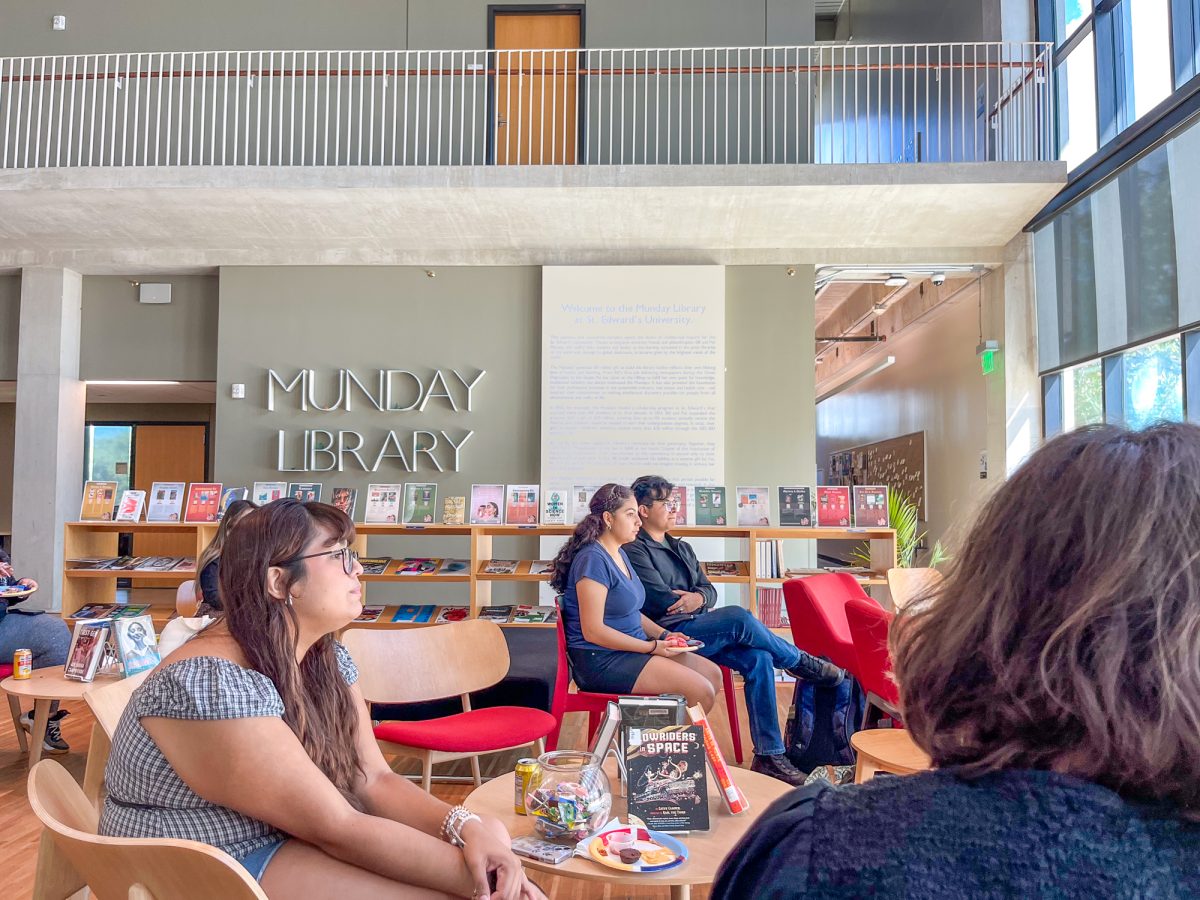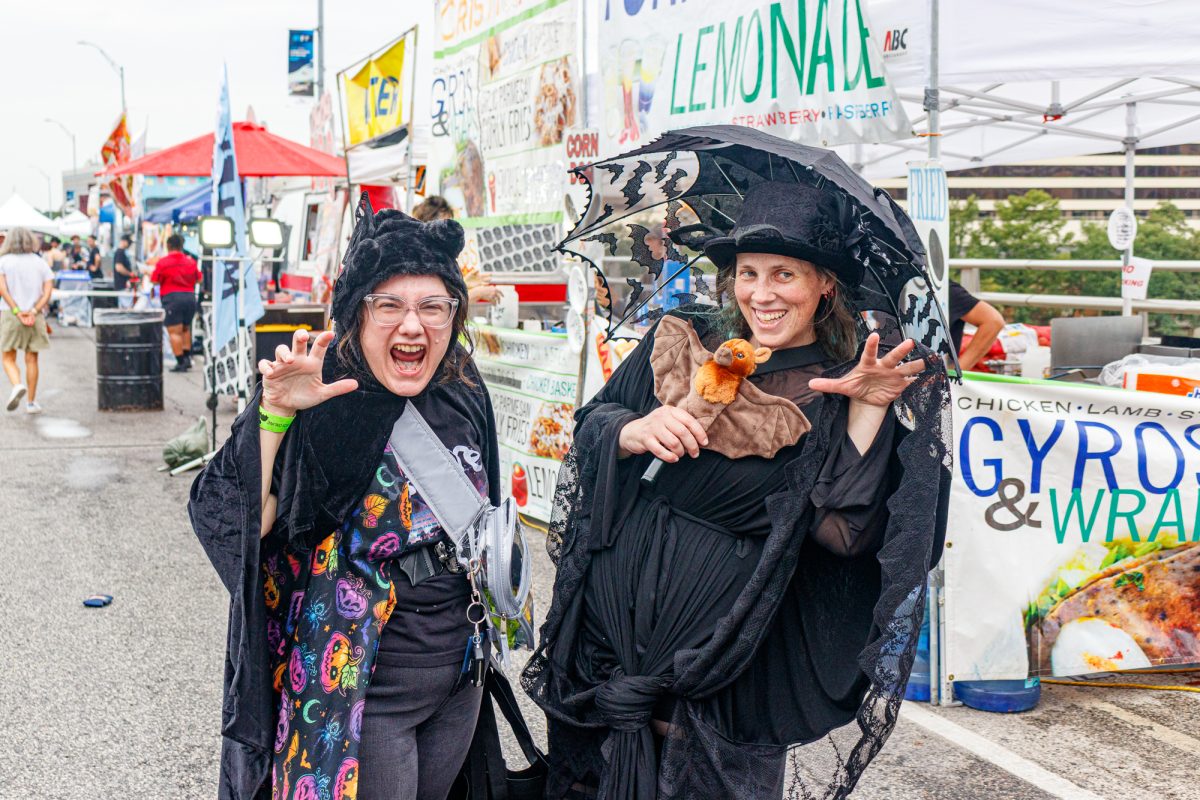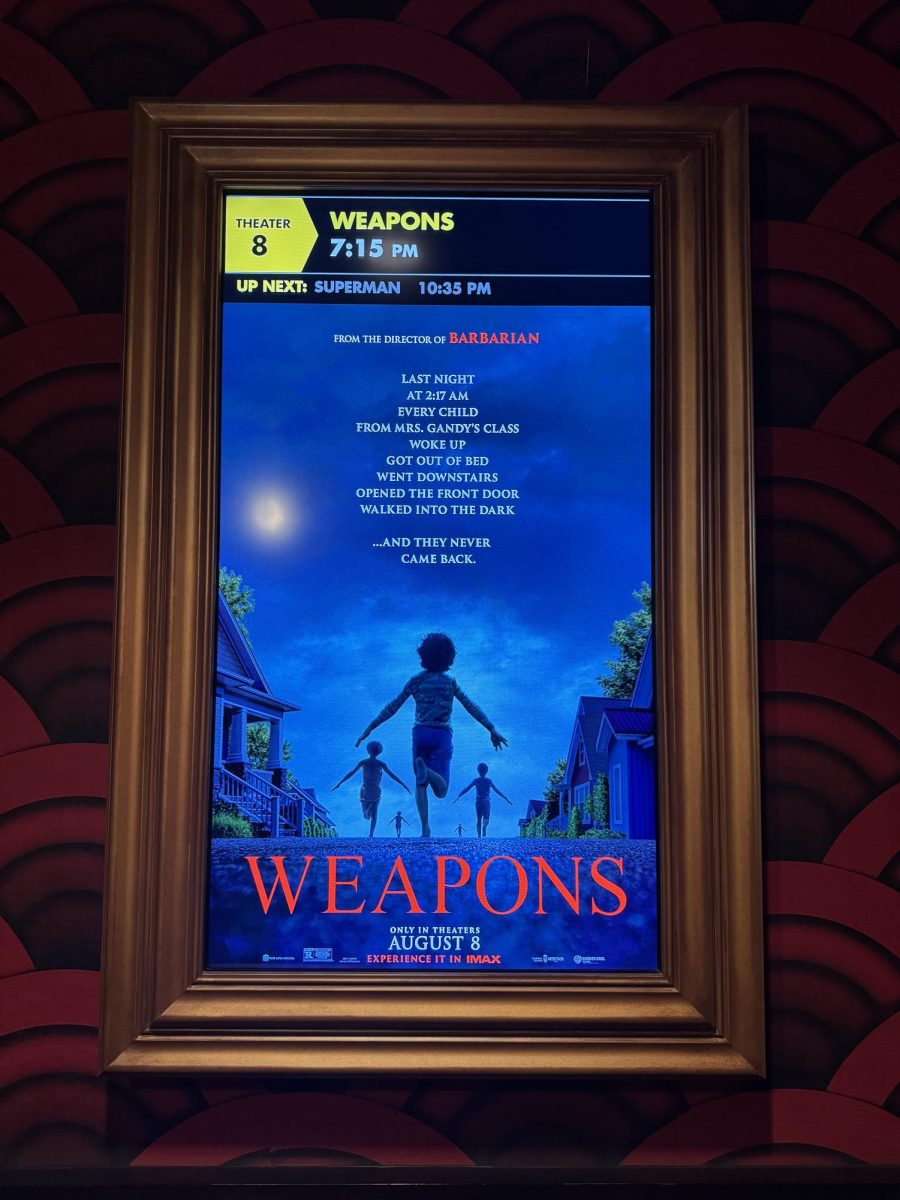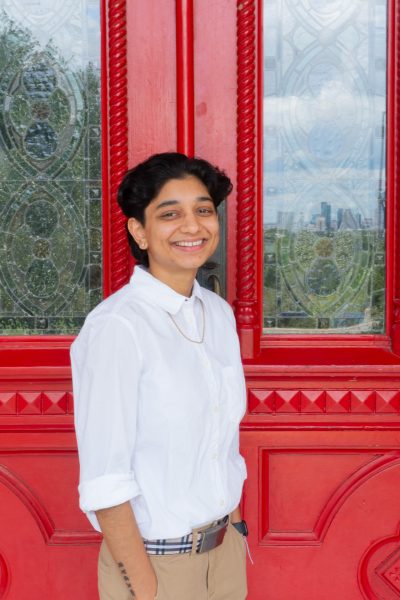Trigger warning: This article discusses topics related to sexual violence, rape culture and consent that may be triggering for some individuals.
St. Edward’s University organization, It’s On Us (IOU), held its first faculty workshop with professor of communication Lori Peterson. This workshop was meant to raise students’ awareness of rape culture and how some of our everyday language and activities perpetuate rape culture.
The workshop started off with Peterson giving a small introduction about herself and a trigger warning about the content that was going to be talked about.
“Back in the day, there were no words for unconsented sexual activity,” Peterson said, as she was describing an event that happened to her college roommate who had gone on a date with a man and then engaged in sexual activity with him, although she did not want to.
She went on to define what communication is, how we can use communication skills to talk about rape culture and how we can respond to situations where someone has experienced sexual assault. Peterson also mentioned that in the course of her research to speak at this event, she came across other universities that have issued a statement on what exactly sexual assault is along with resources for students who do experience this. St. Edward’s does not have a statement like this, however, there are title IX resources available to students.
The talk then focused on laws, specifically in Texas, that deal with sexual assault and issues of consent. According to Southern Connecticut State University, rape culture is identified as “An environment in which rape is prevalent, sexual violence is normalized and excused in the media and pop culture; perpetuated through misogynistic language, objectification of women’s bodies, glamorization of sexual violence… creating/reinforcing a society that disregards women’s rights and safety.”
Some of the students’ main concerns about the perpetuation of rape culture had to do with the desensitization of words, which minimizes the impact and seriousness of these actions. This had to do with TikTok and how online, instead of using words like “rape” and “sexual assault,” people refer to it as “grape” and “SA.” The same goes for the word “porn” being called “corn.” Students are also concerned that these words used on social media are seeping their way into real-life conversations, which can cause miscommunication and less clarity, as well as downplay what may have happened to an individual.
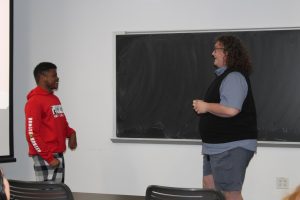
The floor was then opened up to the students, who were given some scenarios in which a sexual assault was attempted or had already happened. Students were then asked to act out these scenarios and create a response based on what they learned from the presentation. The purpose of this was to help students understand how things can sometimes get complicated and that the most important thing you can do for a survivor of sexual abuse is to let them know you are there to support and help them – concluding the workshop.
“I’ve been familiar with It’s On Us for several years on campus,” Peterson said. “I think they’re a great organization and necessary on a college campus. I’ve been teaching on this campus for 24 years and I really care deeply about my students and especially about their well-being and safety. I think talking about rape culture and talking about sexual assault is imperative in order to increase everybody’s health and well-being on a college campus.”
It’s On Us will do more of these workshops to expand students’ knowledge of issues like rape culture and sexual assault. The next workshop is planned to be with Adam McCormick PhD in partnership with Redefinding Me(n). The date has not been set as of yet but IOU has made on and off-campus resources available to students.
